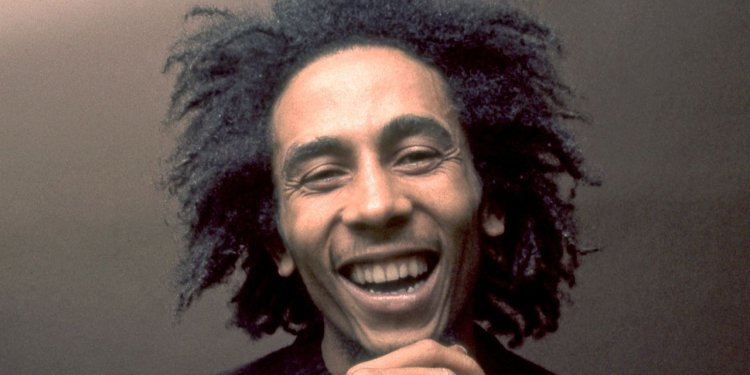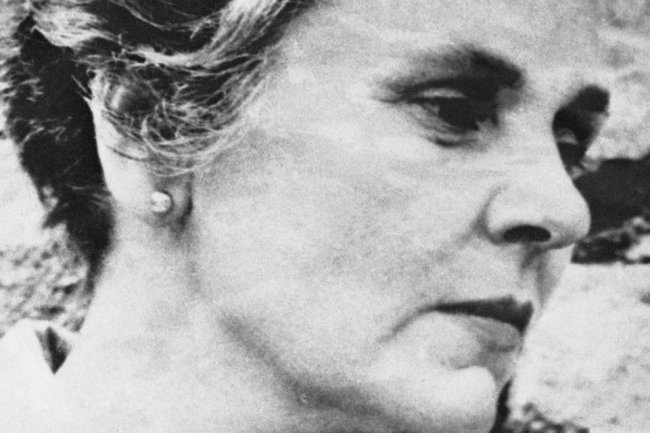Bob Marley and the Wailers’ ‘Catch a Fire’ Turns 50
By Marc Myers Updated April 15, 2023 7:00 am ET Bob Marley in 1973 Photo: fifty-six hope road music ltd./Reuters Jamaican music was hardly foreign to American ears or the U.S. pop charts in 1973. Starting with Harry Belafonte’s recording of “Day-O (The Banana Boat Song)” in 1956, singles became hits using Jamaica’s brassy ska and mellow rocksteady styles. These included Millie Small’s “My Boy Lollipop” (1964), Johnny Nash’s “Hold Me Tight” (1968) and “I Can See Clearly Now” (1972), the Beatles’ “Ob-La-Di, Ob-La-Da” (1968) and Desmond Dekker & the Aces’ “Israelites” (1968). Then, in February 1973, the Jamaican crime film “The Harder They Come,” starring singer Jimmy Cliff, was released in the U.S. along with the soundtrack album. Many Americans were expose

By
Marc Myers

Bob Marley in 1973
Photo: fifty-six hope road music ltd./Reuters
Jamaican music was hardly foreign to American ears or the U.S. pop charts in 1973. Starting with Harry Belafonte’s recording of “Day-O (The Banana Boat Song)” in 1956, singles became hits using Jamaica’s brassy ska and mellow rocksteady styles. These included Millie Small’s “My Boy Lollipop” (1964), Johnny Nash’s “Hold Me Tight” (1968) and “I Can See Clearly Now” (1972), the Beatles’ “Ob-La-Di, Ob-La-Da” (1968) and Desmond Dekker & the Aces’ “Israelites” (1968).
Then, in February 1973, the Jamaican crime film “The Harder They Come,” starring singer Jimmy Cliff, was released in the U.S. along with the soundtrack album. Many Americans were exposed for the first time to reggae—a bass-heavy rhythmic style that emerged in 1968 with the Maytals’ “Do the Reggay.”
Bob Marley and the Wailers’ album “Catch a Fire” went a step further. Released 50 years ago this month, the LP was the first by a Jamaican band to fuse reggae with rock and country elements. The record also presented reggae not as a collection of singles but as a Rastafarian message album about love and despair. American and British rock critics raved about the record’s singular energy and eclecticism.
Though the LP peaked only at No. 171 on Billboard’s pop album chart and No. 51 on the black album chart, it ignited the imaginations of British and American rock artists seeking a new, more soulful sound. Reggae was folk-driven—more instrumentally complex and socially conscious than earlier Jamaican pop.
Reggae-influenced rock hits soon followed: Led Zeppelin’s “D’Yer Mak’er” (1973), Eric Clapton’s cover of Marley’s “I Shot the Sheriff” (1974), the Rolling Stones’ “Hey Negrita” (1976), Elvis Costello’s “Watching the Detectives” (1977), the Police’s “Roxanne” (1978), the Clash’s “The Guns of Brixton” (1979) and Blondie’s cover of John Holt’s “The Tide Is High” (1980).
“Catch a Fire” was the Wailers’ fifth studio album, but it also marked an ascension for Marley, a songwriting member of the group along with Peter Tosh and Bunny Wailer. The trio had co-founded the band 10 years earlier as the Teenagers.
In London on tour in 1972, the Wailers met Island Records founder Chris Blackwell. Eager to tap into the expanding international rock market, Mr. Blackwell offered the Wailers an advance for a new album. He also had his eye on Marley, who not only had a rebellious vocal style but also looked the part as a frontman.
The Wailers went home to Kingston, Jamaica, to record midyear. When Marley brought the tapes to London in early 1973, Mr. Blackwell convinced Marley to let him rework three of the songs to give the album a mainstream shot. At the time, reggae was dismissed as novelty music by many U.K. rock fans and was largely unknown in the U.S.
Mr. Blackwell brought in Wayne Perkins, a Muscle Shoals Sound Studio session musician, to overdub his rock-country guitar, and session keyboardist John Bundrick
To celebrate Marley’s legacy, UMe recently released for the first time on vinyl the album’s Jamaican version without the London overdubs, along with 11 other Marley albums. The limited-edition records were pressed in Jamaica at Tuff Gong International, the record label and plant the Wailers founded in 1970.
Marley wrote seven of the nine tracks and Tosh wrote two—“400 Years” and “Stop That Train.” Messrs. Perkins and Bundrick overdubbed on three of the songs: “Concrete Jungle,” “Stir It Up” and “Baby We’ve Got a Date (Rock It Baby).” “Concrete Jungle” is an undulating mid-tempo ballad that opens with Mr. Perkins’s jangly guitar and Mr. Bundrick’s twitching synthesizer. When Robbie Shakespeare’s bass punches in, Marley sings about the hardship of Jamaican life: “No chains around my feet / But I’m not free / I know I am bound here in captivity.”
Mr. Bundrick’s synthesizer on “Stir It Up” sets a lush, liquid mood for this rocksteady-reggae love song punctuated by Aston “Family Man” Barrett on bass. Mr. Perkins’s guitar was fed through a wah-wah pedal to give it a meowing effect.
“Baby We’ve Got a Date” is also rooted in rocksteady and opens with a bass and organ instrumental salute to Belafonte’s “Day-O.” Mr. Perkins’s slide guitar gives this lullaby a country veneer.“Stop That Train” first appeared on “The Best of the Wailers” in 1971 as “Stop the Train.” The slower ’73 version makes Tosh’s vocal about leaving home more meaningful: “And even though I tried my best / I still can’t find no happiness.”
The rest of the album is about love and coping. “Slave Driver” is a political statement on destitution (“Today they say that we are free / Only to be chained in poverty”), “400 Years” looks at the suppression of Jamaica’s youth culture, “No More Trouble” is a call for peace, and “Midnight Ravers” is about Jamaica’s outdoor dance-party culture.
The Jamaican recording and the original album release with London overdubs were issued together on a deluxe CD in 2001 and can be heard together on streaming platforms.
While both renditions have special qualities, Mr. Perkins’s guitar solos and Mr. Bundrick’s keyboards still sound fascinating paired with the Wailers’ music. The hybrid tracks raised Marley’s and the band’s visibility and helped make reggae a worldwide sensation.
—Mr. Myers is the author of “Rock Concert: An Oral History”
and “Anatomy of 55 More Songs” (Grove Press).
What's Your Reaction?













